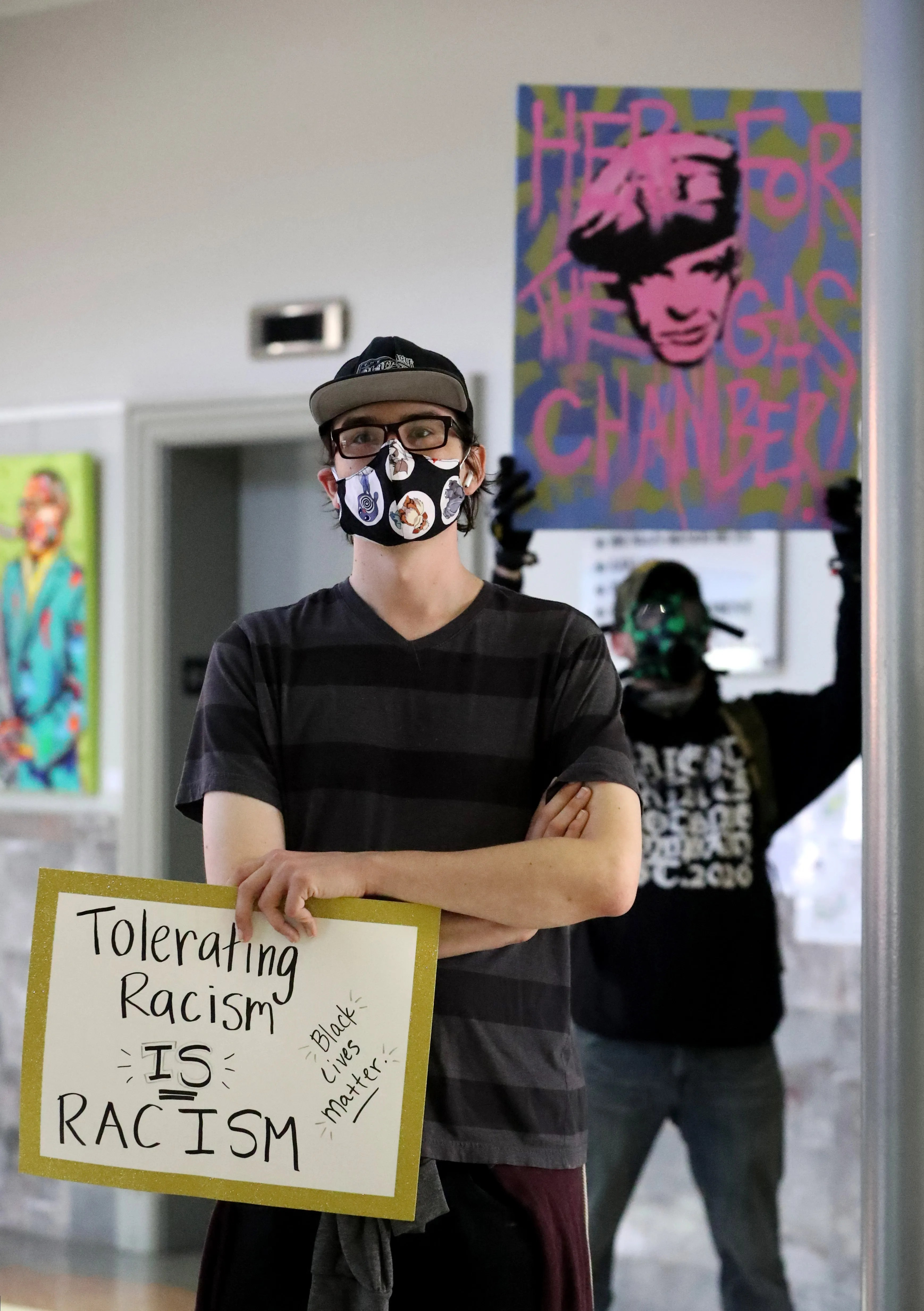
The realm of horror art has captivated audiences for decades, and one of the most intriguing facets of this genre is the concept of "gore cent." This term encapsulates the essence of graphic imagery and visceral expressions that push the boundaries of art and evoke intense emotions. From classic horror films to modern graphic novels, the influence of gore cent can be seen everywhere, challenging societal norms and evoking both fear and fascination.
The appeal of gore cent lies not only in its shock value but also in its ability to provoke thought and discussion. Fans of this genre often find themselves drawn to the intricate details and the artistic prowess behind each piece. The concept transcends mere horror, delving into the psychological realm of human fears and the darker aspects of our existence. As we explore this phenomenon further, we will uncover the various dimensions of gore cent and how it has evolved over time.
Whether you are an art enthusiast, a horror aficionado, or simply curious about the darker sides of creativity, understanding gore cent can enhance your appreciation for this unique art form. This article will guide you through the history, significance, and impact of gore cent on artists and audiences alike, shedding light on why it continues to resonate in contemporary culture.
What is Gore Cent and Its Origins?
The term "gore cent" refers to a specific style within horror art that emphasizes graphic imagery, often depicting violence, decay, and the grotesque. It has its roots in various artistic movements, such as Expressionism and Surrealism, which sought to explore the depths of human emotion and the subconscious mind. Artists like Francisco Goya and Edvard Munch laid the groundwork for this genre with their haunting depictions of despair and madness.
How Does Gore Cent Influence Modern Art?
Gore cent has significantly influenced contemporary artists, pushing them to explore themes of mortality, fear, and the macabre. Many modern artists draw inspiration from classic horror films, comic books, and even video games, creating a fusion of traditional and digital art forms. This evolution has led to a broader acceptance of graphic imagery in mainstream culture, with galleries and exhibitions showcasing works that challenge conventional aesthetics.
Who are the Notable Artists in the Gore Cent Movement?
Several artists have made a name for themselves within the gore cent movement, each bringing their unique perspective to the genre. Some notable figures include:
- H.R. Giger - Renowned for his biomechanical designs in the "Alien" franchise.
- Clive Barker - A writer and director known for his horror films and graphic novels.
- Junji Ito - A Japanese manga artist famous for his horrifying and surreal stories.
- Bill Sienkiewicz - An artist who blends fine art with comic book illustration, often incorporating horror elements.
What Are the Psychological Effects of Engaging with Gore Cent?
Engaging with gore cent can elicit a range of psychological responses, from fear and disgust to intrigue and fascination. Many enthusiasts find that confronting these darker themes allows them to explore their fears in a safe and controlled environment. This cathartic experience can lead to deeper self-awareness and an understanding of the human condition.
How is Gore Cent Represented in Popular Media?
Gore cent has permeated popular media through films, television shows, and literature. Iconic horror franchises like "Halloween," "The Texas Chainsaw Massacre," and modern series such as "American Horror Story" often employ gore cent elements to heighten tension and engage viewers. Additionally, video games like "Resident Evil" and "Silent Hill" have incorporated graphic imagery to create immersive and terrifying experiences.
What Are Some Controversies Surrounding Gore Cent?
The graphic nature of gore cent has sparked debates regarding artistic expression versus societal norms. Critics argue that such imagery can desensitize audiences to violence and perpetuate harmful stereotypes. Conversely, supporters advocate for the freedom of artistic expression and the importance of exploring uncomfortable themes. This ongoing discourse highlights the complex relationship between art and society.
How Can One Appreciate Gore Cent Art?
To fully appreciate gore cent, it is essential to approach it with an open mind and an understanding of its historical and cultural context. Here are some tips for engaging with this genre:
What is the Future of Gore Cent in Art and Culture?
The future of gore cent looks promising, with an increasing number of artists embracing the genre and pushing its boundaries. As society continues to grapple with themes of violence and fear, gore cent will likely remain a relevant and vital part of artistic expression. The rise of digital art and social media has also allowed for greater accessibility and exposure, enabling a new generation of artists to explore this captivating genre.
Conclusion: Embracing the Dark Side of Art
In conclusion, gore cent represents a compelling intersection of art, psychology, and cultural discourse. Its ability to provoke thought and evoke strong emotions ensures its place in the artistic landscape. By understanding the significance of gore cent, we can appreciate the complexities of human fears and the artistic expressions that explore them. Whether you are a seasoned fan or a newcomer, the world of gore cent invites you to delve into the darker aspects of creativity and confront the fears that lie within.
ncG1vNJzZmivp6x7p7XGoaugqpGlva2x05qnZ5ufonyrsMCmZqCnopp6pLHNrWWhrJ2h